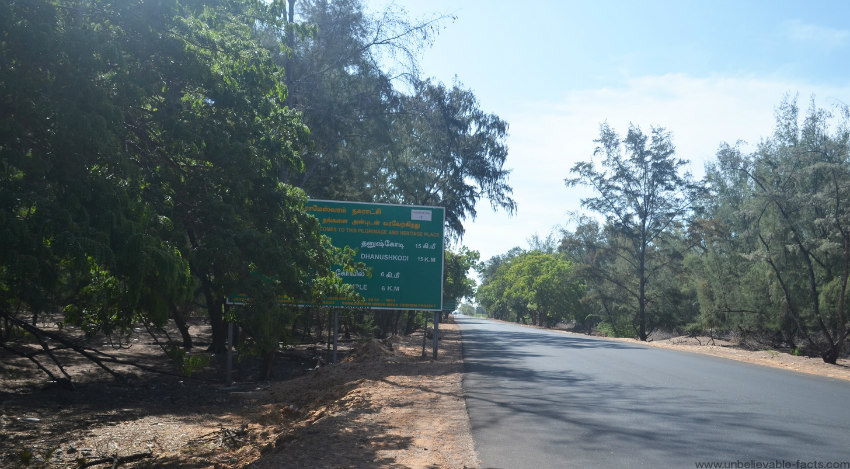Pictures of a Ghost Town from India, Which was Destroyed by a Cyclone in 1964 and Claimed Many Lives
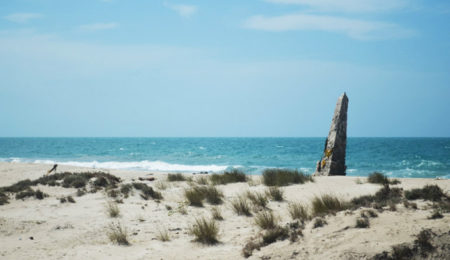
There is something about ghost towns that appeals to our minds and taps awake our curiosity to understand the life that was before tragedy struck. The same can be said for Dhanushkodi, a town that once prospered, and then saw destruction and calamity. After a devastating cyclone in the year 1964, all that’s left of the town are these hauntingly beautiful ruins. And here are our exclusive pictures of the ghost town from India, that now stands amidst the deceptively calm waters of Bay of Bengal and Indian Ocean.
The 15 kilometer road to Dhanushkodi from Rameswaram
Dhanushkodi is an abandoned town located at the south-eastern tip of Pamban Island of Tamil Nadu, India. It is where the rough waters of Indian Ocean meet the calm waters of Bay of Bengal.Â
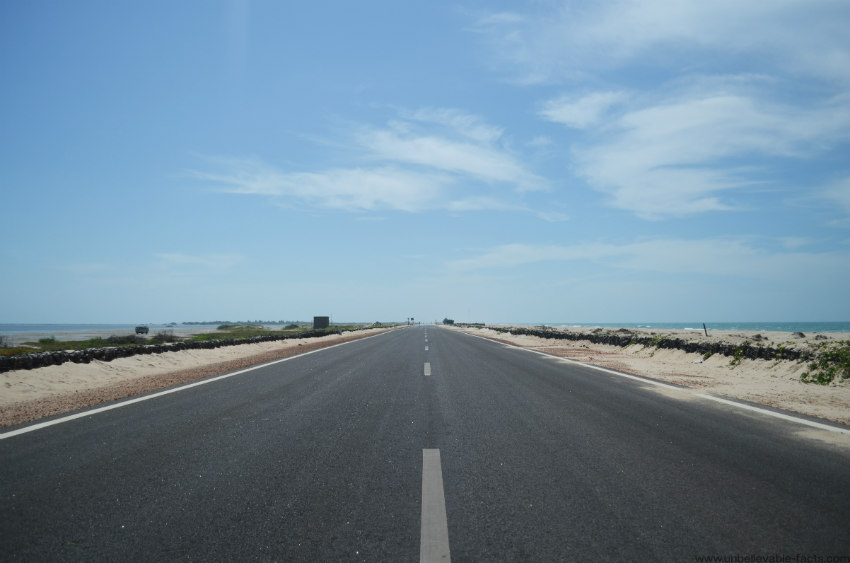
The town was the southernmost inhabited area in India and is part of Rameswaram taluk of Ramanthapuram district in Tamil Nadu.

The Pamban Island, along with the shoals of the tombolo called Adam’s Bridge or Rama Sethu, and Mannar Island of Sri Lanka separate Palk Bay on the northeast from the Gulf of Mannar on the southwest. The water body between Pamban Island and Sri Lanka is known as Sethusamudram (sethu meaning bridge, samudram meaning sea), because of all the shoals in it.
It has the only land border between India and Sri Lanka which is one of the smallest borders in the world, being only 45 meters wide.Â
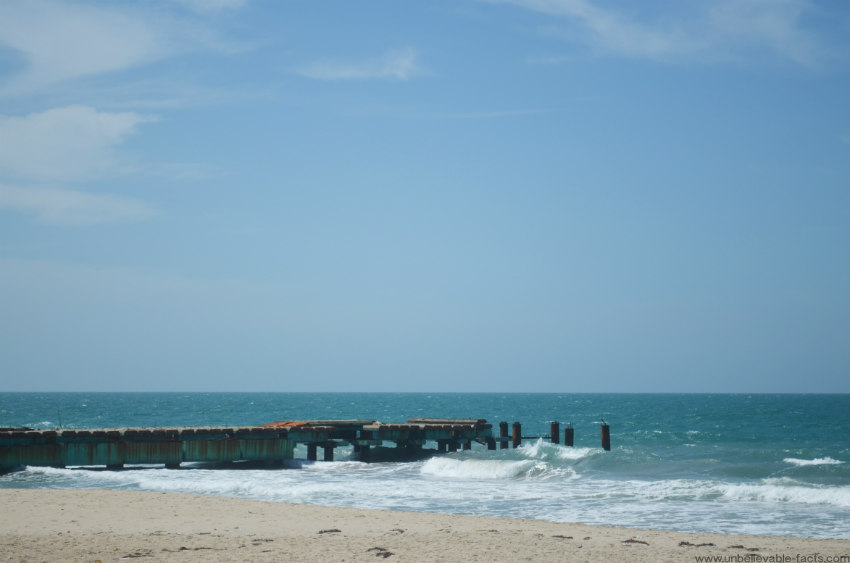
The town Dhanushkodi is only 18 miles west from Talaimannar of Sri Lanka. In the past a ferry service linked both the countries, which was also part of the train journey (Indo-Ceylon Express, renamed to Rameswaram Express after 1964) from Chennai to Colombo as people traveled to Pamban Island, then switched to ferry, and then to another train at Talaimannar to Colombo. The ferry service was cancelled in 1982 because of the fighting between Sri Lankan government forces and the separatist LTTE.
The old harbor that was used to provide transport for travelers and goods between Dhanushkodi and Talaimannar.Â
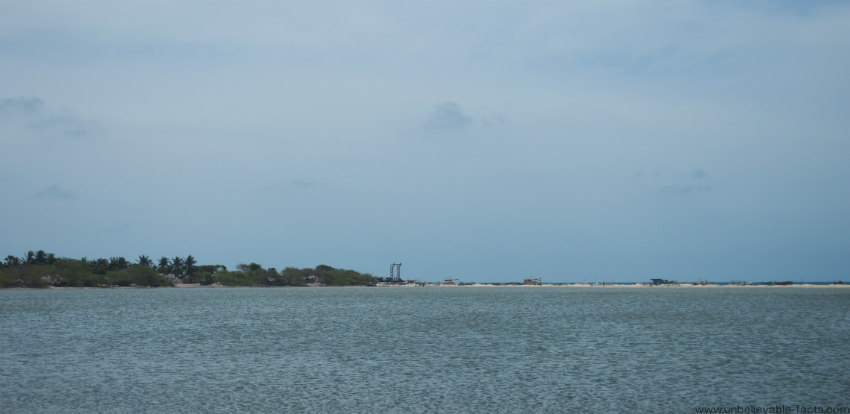
The tombolo, known as Adam’s Bridge or Rama Sethu, connecting Dhanushkodi of India and Talaimmanar of Sri Lanka is said to have formed because of longshore drifting currents which moved in anticlockwise direction in the north and clockwise direction in the south.
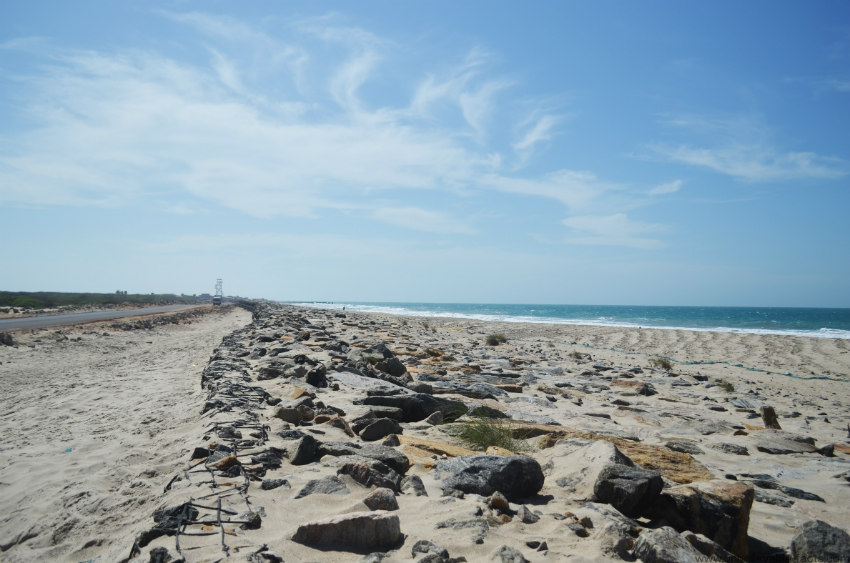
There are also many other theories regarding how the tombolo was formed between the two countries. The lack of proper field studies and field verification has led to a lot of uncertainties and confusion regarding the nature and origin of the bridge. In the 19th century, there was a prevalent theory that it could have formed by the breaking away of Sri Lanka from India mainland. There is one theory that suggests that the bridge could have formed by continuous sand deposition and sedimentation, while another states that there was an old shoreline that once connected both the countries. According to another study, it was the world’s largest tombolo a few thousand years ago, before the rise of mean sea level that split it into a chain of shoals.
Translated to “the end of bow”, the town is of religious significance to Hindus, who believe that Rama traveled to Sri Lanka from there to rescue Sita.Â
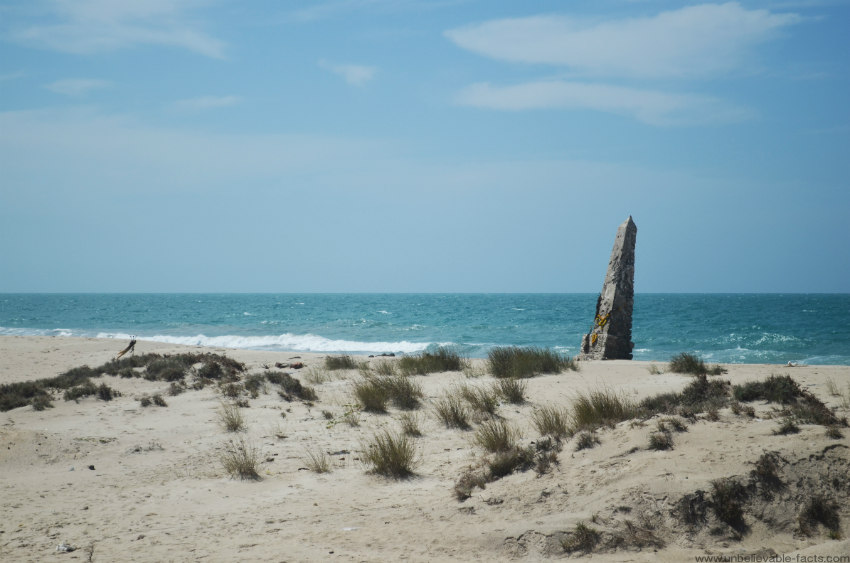
There are several mythical stories, mostly differing in details, about how Rama, an avatar of the Hindu god Vishnu, went about rescuing Sita, an avatar of the Hindu goddess Lakshmi. According to the epic Ramayana, written by Valmiki, a bridge between the islands of Pamban and Sri Lanka was built by the Vanara army who were assisting Rama in his war against Ravana, the King of Lanka. When Rama won his war, he was asked to destroy the bridge, which he did using the end of his bow, hence the name “Dhanushkodi”. The Hindus believe that a dip in the waters of Palk Bay completes the holy pilgrimage from the city Varanasi in Uttar Pradesh, North India.
The 1964 Rameswaram/Dhanushkodi cyclone wreaked havoc with 25 feet (7.6 meters) high tidal waves submerging the town, killing 800 town’s people, overturning the Pamban-Dhanushkodi passenger train and killing everyone on board.Â
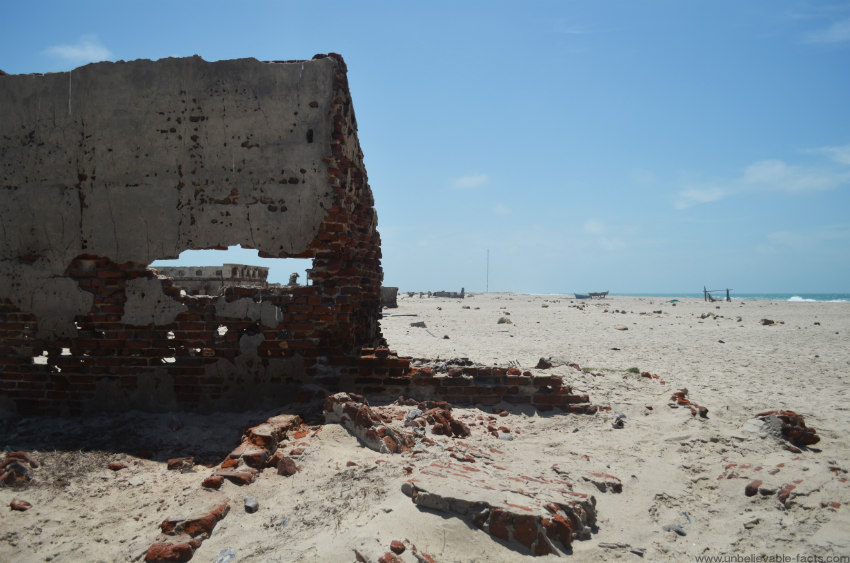
The cyclone started as a depression in the Andaman Sea on December 17, 1964, and reached cyclonic intensity by December 19. It made landfall on December 22 at Dhanushkodi, after it crossed Sri Lanka with a wind velocity of 280 kilometers per hour. Though, 1977 Andhra Pradesh cyclone and 1999 Orissa cyclone, had unprecedented death toll, Rameswaram cyclone is considered one of the fiercest cyclones in terms of wind velocity.

The cyclone destroyed both Dhanushkodi and areas of Jaffna district of Sri Lanka, killing over 1,800 people, including 800 in the town alone, and many more unaccounted for.
The town was once a flourishing and important port location as it was the gateway between India and Sri Lanka.Â
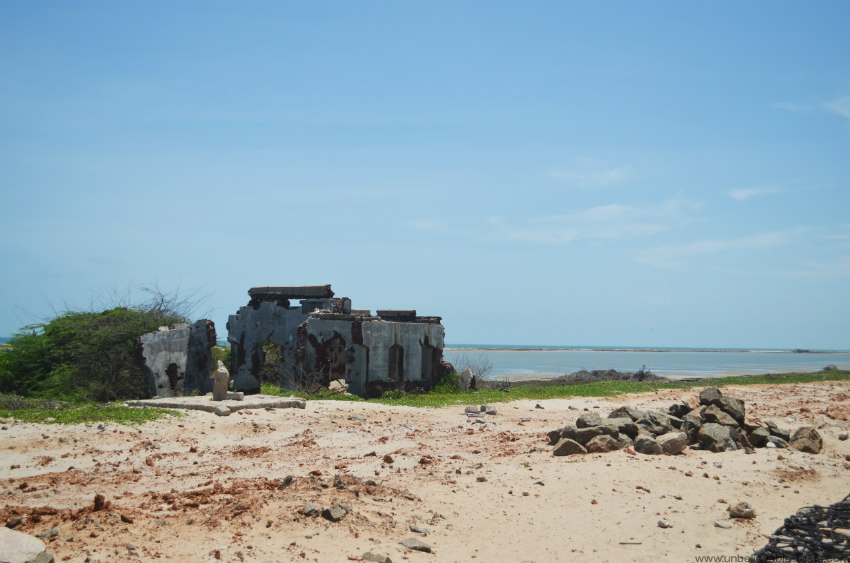
During the 1950s, the town flourished as a port with steamer ferry services that were available daily and transported travelers and goods across the Palk Strait. The Indo-Ceylon Express, also known as Boat Mail Train, would travel from Egmore Station in Chennai, India, on a meter gauge track until Dhanushkodi, where the passengers would pass through customs and get on the ferry. Before the flood destroyed the town, the town had a railway station, a railway hospital, primary schools, a post office, customs and port offices. There were also hotels and textile shops for the travelers.
What’s left of the old railway station that once received passengers from both India and Sri Lanka
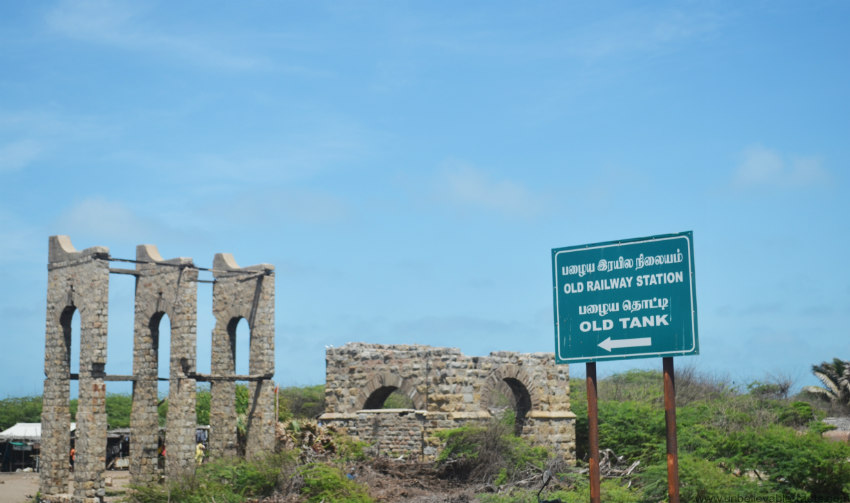
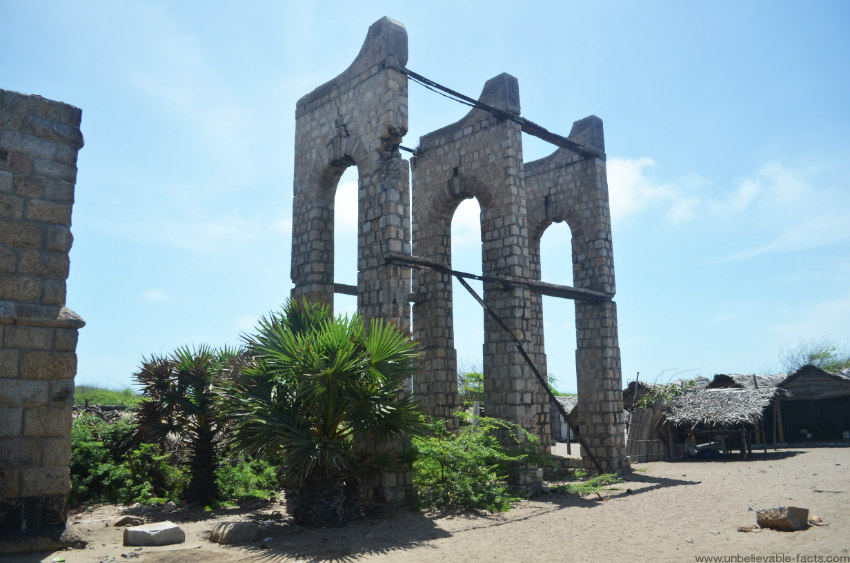
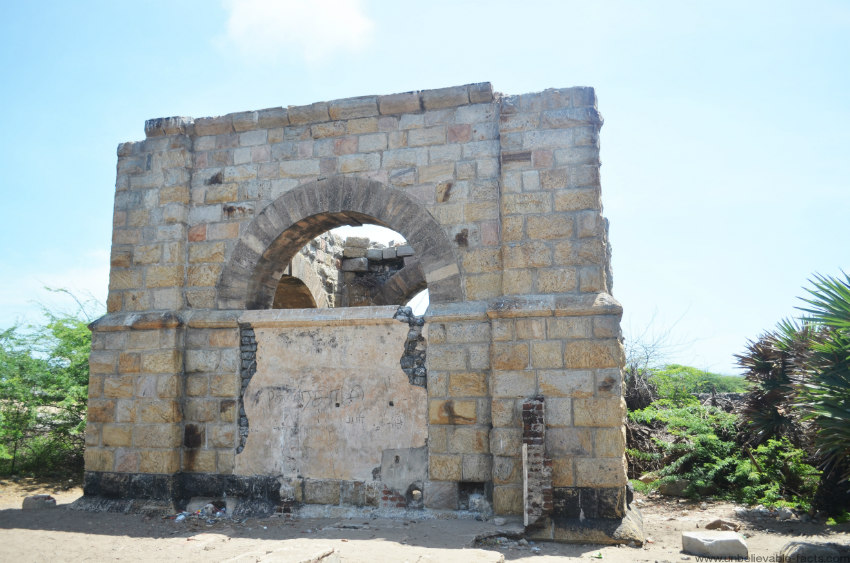


The remains of St. Anthony’s Church

The remains of St. Anthony’s Church

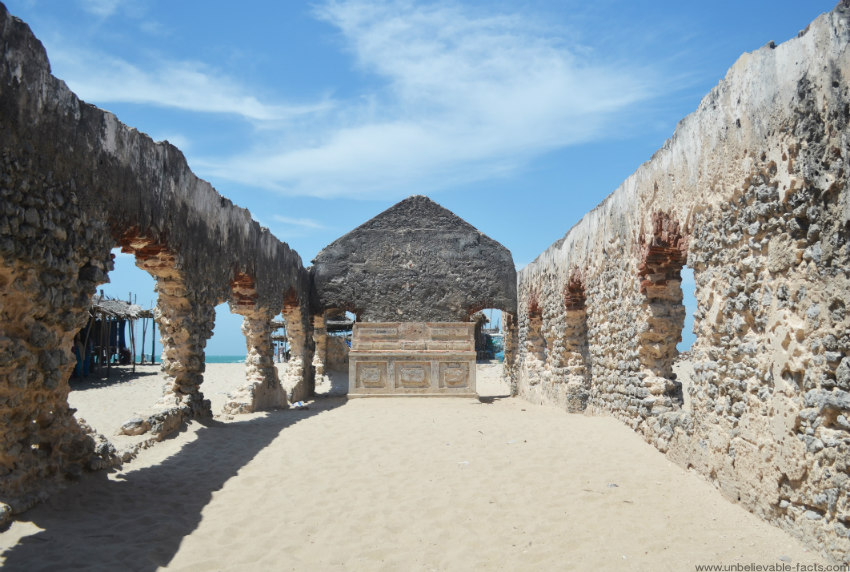
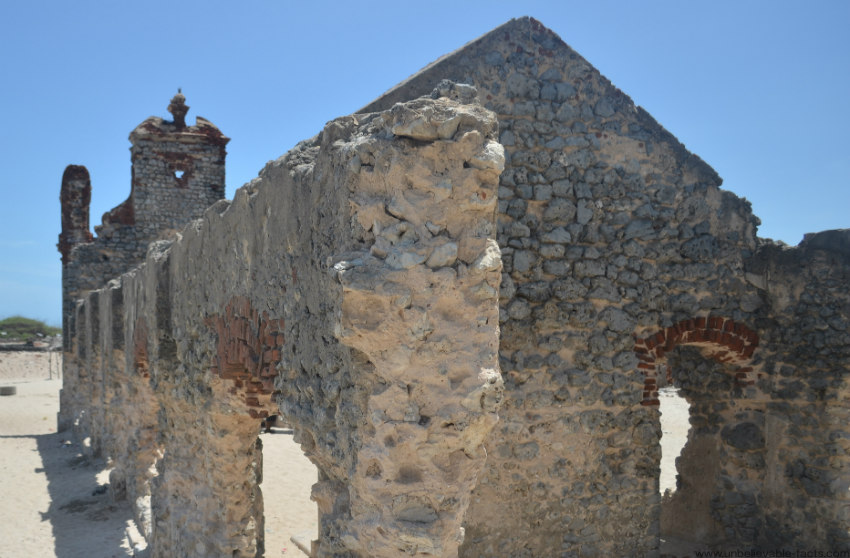
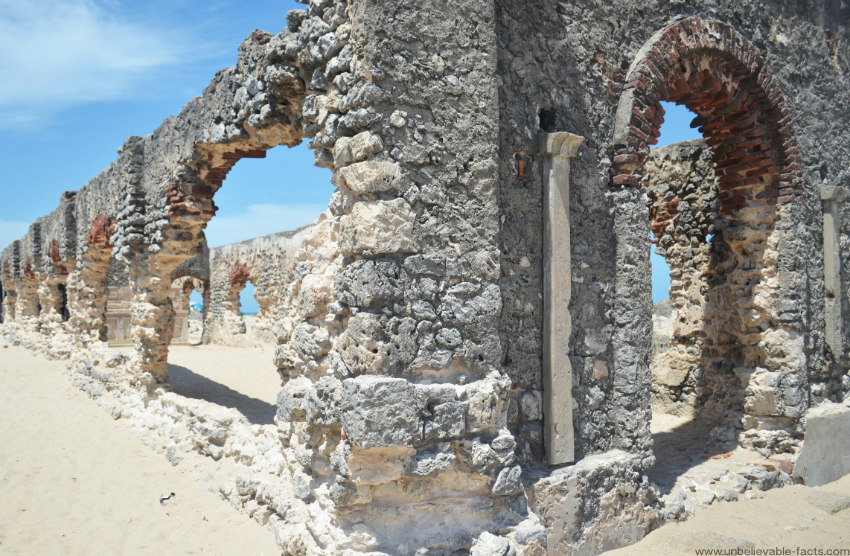
The ruins of a building that once was police quarters
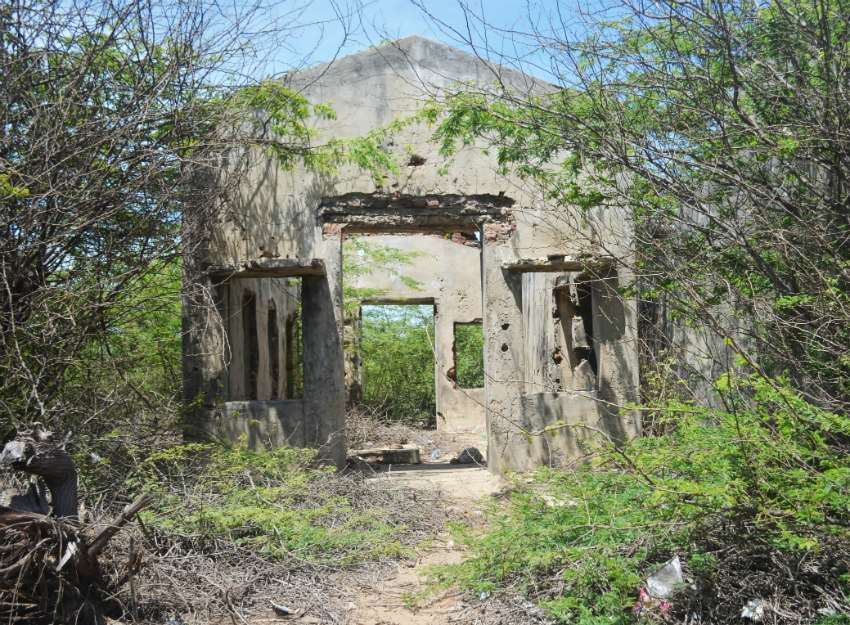
The still standing walls of the old hospital that once provided medical services to the residents and travelers.
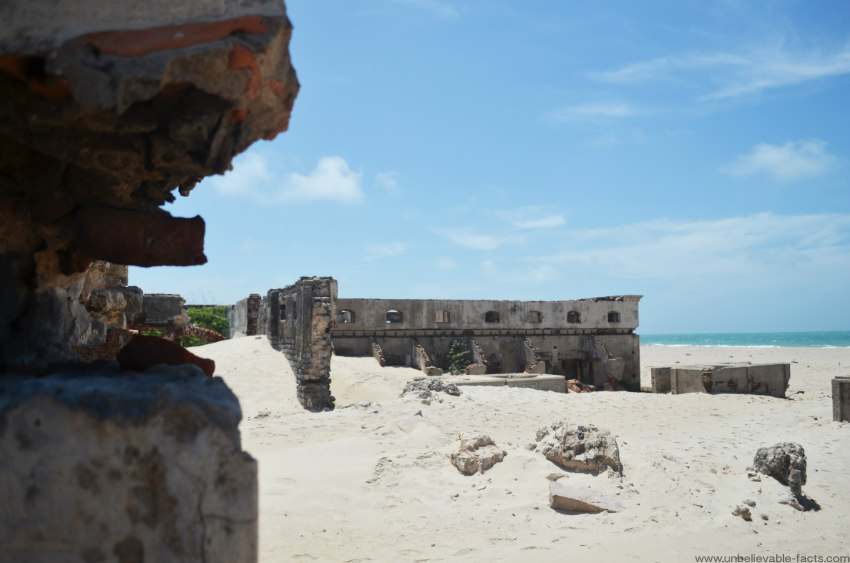
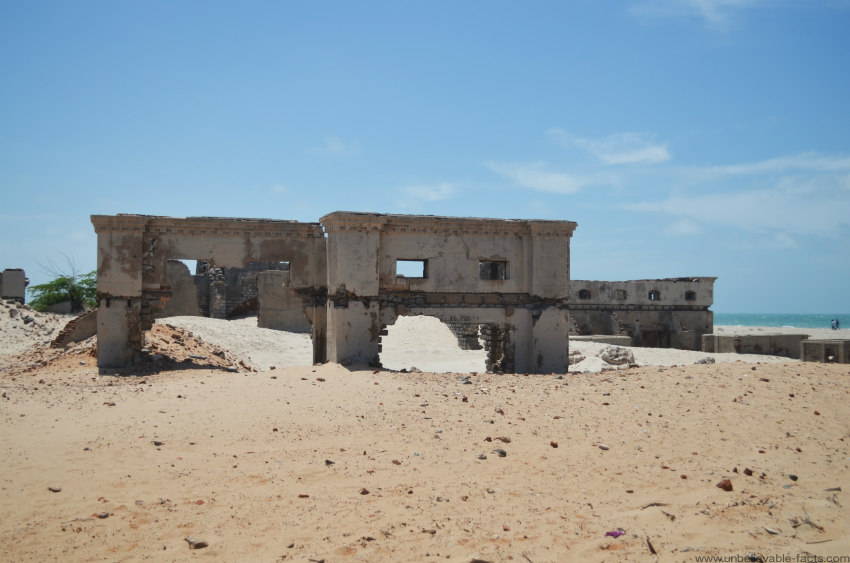
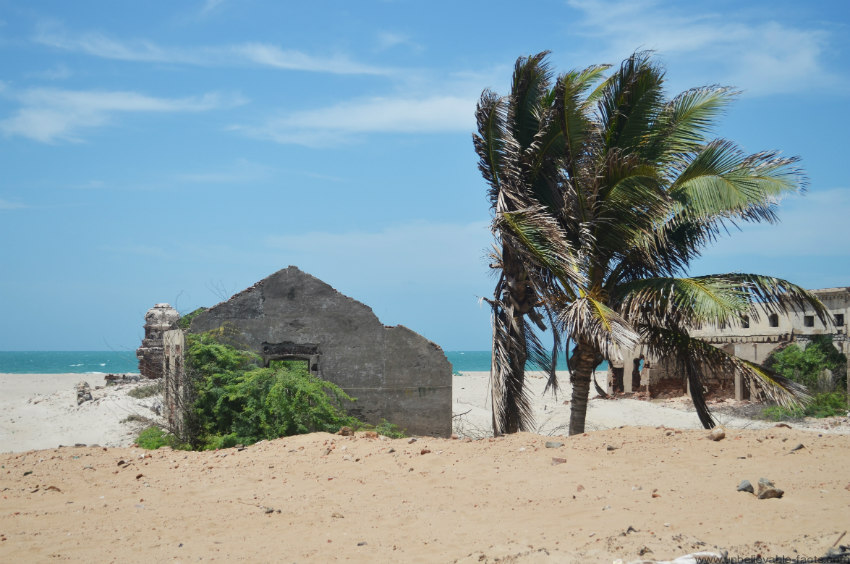
The Pamban Railway Bridge was reconstructed within 45 days after the cyclone, and a road bridge (from which the picture below was taken) was built in the following years.Â
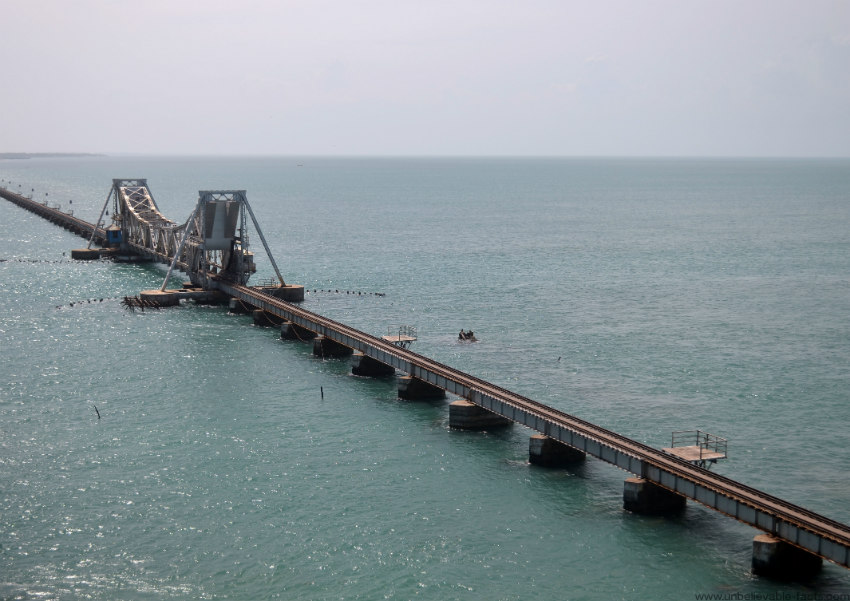
Dhanushkodi is now a tourist location, but otherwise abandoned, except for a few fishermen with their huts and some local people who set up small shops at the beach for tourists.Â
A vast majority of the tourists that visit the town and the beach are the pilgrims visiting the temples in Rameswaram, especially during festivals and full moon days. The town is known for its historical significance, geologic curiosity and the special geographic location.(1, 2, 3)














